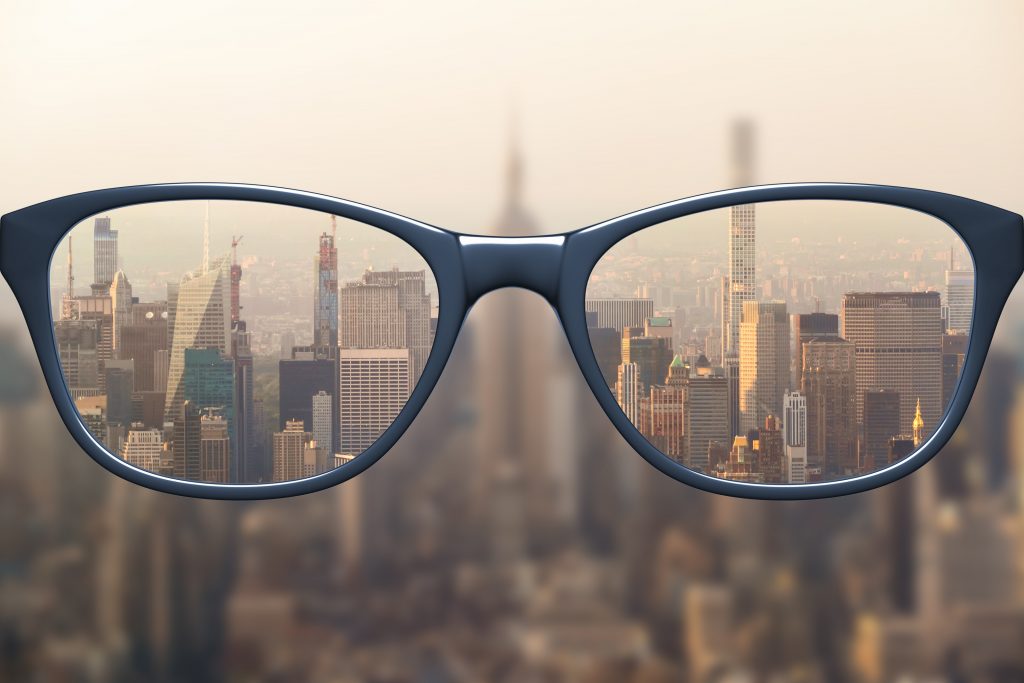You don’t know what you can’t see until you see it

I got glasses recently. I’ve been lucky enough to make it to fifty-five without them (and still only need a weak prescription), but apparently my eyes are aging with my body. When I first put them on and noticed how clear the road signs and TV screens suddenly were, I realized that what I’d been accepting as clarity was actually slightly blurry.
It’s the same in all parts of our lives – there are lots of things that we don’t realize we’re not seeing until we’re given a new pair of glasses.
I was raised in an evangelical church where we were taught that everyone needed to be saved and the highest calling was to bring lost souls to Jesus. That was the lens I saw the world through for the first half of my life. In our tiny country church, we often had visiting missionaries who would share stories of the places – both faraway and in northern parts of our country – where they were building churches and schools and bringing people the gospel. Those missionaries were held in high regard.
What I couldn’t see back then, because I didn’t have the right pair of glasses, was how much that worldview had allowed Christianity to be in an enmeshed relationship with colonization all over the world. When colonizers want to take over the land and resources, what better bedfellows than Christians who want to convert the “heathens”, and replace their culture and spiritual practices with Christianity?
Around twenty-five years ago, I started to see it. Books, conversations and movies gradually opened my eyes, and I allowed the questions to keep growing. It was hard, at first, because it felt like betrayal of my past and an abandonment of the people whose beliefs I was beginning to question, but once you start to see it, it’s hard to un-see it.
Seventeen years ago, I wrote my first blog post when I was preparing for my first trip to Africa. I wrote this… I won’t preach from my white-washed Bible. I won’t expect that my English words are somehow endued with greater wisdom than theirs. I will listen and let them teach me. I will open my heart to the hope and the hurt. I will tread lightly on their soil and let the colours wash over me. I will allow the journey to stretch me and I will come back larger than before.
I experienced things on that trip that gave me an even more clear lens on the relationship between colonizers and Christians and the harm done in the name of Christ, and I came home angry, disillusioned and with lots to process. I no longer wanted to be associated with a religion that had done so much harm.
Recently, I’ve been watching the response of Christians to the discovery, here in Canada, of hundreds of unmarked graves on the sites of former residential schools (which were largely run by churches), and I recognize what it’s like to be suddenly asked to put on a new pair of glasses and see the truth of what’s been done in the name of religion. It can be painful, and many want to stay in a state of ignorance, because they can’t get past the cognitive dissonance that comes when something they believe to be good and true and just (the church) has caused so much harm.
But once you put on a new pair of glasses, it’s only with intentional denial that you can stay in the belief that the world looks better without them.
It’s taken me some time to get used to my new glasses. I don’t always love them, because they’re a little disorienting (they’re bifocals, so the world looks different depending on which part of the lens I’m looking through), and it takes some effort to keep them clean, but I know I’ll be better off when I get used to wearing them. I just have to give myself time for the adjustment period.
If you’re having a hard time getting used to a new view and you’re tempted to go back to the old one, don’t give up. Just give your eyes time to adjust.
(Note: I believe that it’s possible to decolonize Christianity and I believe that Jesus provided the model for it. I am glad that there are those who are working hard to dig deeper in that work.)
